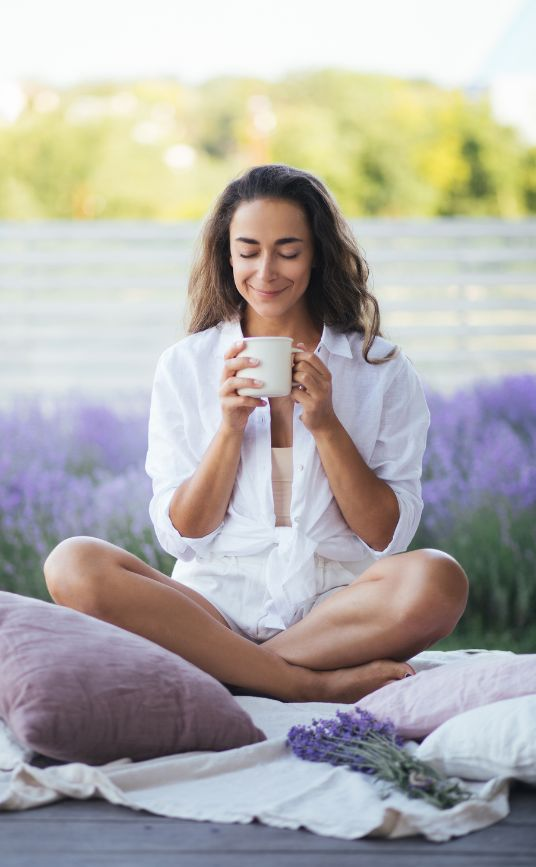Daylight saving time (DST) is practiced in a few countries around the globe. When the warmer months are approaching these regions, the clocks are advanced one hour, causing it to get dark later in the day. Then, when the warm months have ended, the time is moved back one hour, so darkness happens earlier in the day.
Some believe that Benjamin Franklin first proposed a version of daylight saving time in 1784 as a joke, suggesting it would be a way to save candles by having daylight later in the day. This has yet to be proven, though. It wasn’t until the 1900s, when entomologist George Hudson wrote a popular proposal, that the idea really took hold and started being implemented worldwide. However, it should be noted that the majority of the world no longer practices daylight savings.
Does the End of Daylight Savings Affect the Body?
When DST is over, people move their clocks back an hour. You may have heard the phrase, Spring Forward, Fall Back. That’s a way to remember that you move your clock up one hour in spring, and in fall, it goes back. More than just being confusing, DST can actually cause some physical, mental, and emotional effects. How long does it take to adjust to daylight savings time? That depends on the individual.

DST and Mood
Sunlight directly affects opioid receptors in the brain and releases serotonin and norepinephrine, which can positively affect mood. While the number of daylight hours doesn’t change with a clock change, a person’s ability to enjoy the sun can change, especially if they work inside during the daylight hours. That means people who are inside and get no sun during the day are more prone to negative changes in mood.
DST and Sleep
The end of daylight saving time actually gives you an additional hour of sleep, so it’s better than the beginning of DST – sort of. The thing is, any disruption to your schedule can throw off sleep patterns. Many people report difficulty sleeping after daylight savings.
If you normally go to bed at 10 pm and wake up at 6 am, you’re getting 8 hours of sleep. The first morning, after DST has ended, you will probably wake up, but it will be 5 am because the clock has changed. Then when the clock reads 10 pm, you’re simply not tired. It’s a cycle that’s not helped at all by seeing less sunlight. There are many short-term and long-term consequences of sleep disruption, and none of them are good.
Cardiovascular Response to DST
We can’t underscore enough how sleep disruption can negatively affect someone,. Heart health is certainly something you want to pay attention to and support as much as you can. That’s part of the reason why you’ll want to take some steps to prepare for the beginning and the end of daylight saving time, so it’s easier on your body.
How To Stay Energized and Minimize the Effects of DST
Minimizing the effects of daylight savings time on the body can help you stay healthier and feel better mentally and emotionally. Following the five ways to stay energized will not only help you get through the time change, but they can make navigating darker days less of a challenge.

Slowly Adjust to the Time Change
Don’t dive in, instead begin adjusting to the time change gradually. For example, try giving yourself about a 10-minute shift each day for the week leading up to the beginning and the end of daylight saving time. Even better. Give yourself a few days to adjust to the shift, which means beginning an entire month before the time actually changes to really adapt.
Keep the Same Routine
Sticking to a routine is always good for your body. It can be difficult, but if you work really hard to make it happen, your body will thank you. Try to focus on these two tips:
♦ Try to keep things as routine as possible despite the time change
♦ Eat, exercise, and sleep at your normal times as much as possible
Maintain Good Sleep Hygiene
How are your sleeping habits? It’s not fair, but people with the best sleeping habits will have the hardest time adjusting. These tips can help:
♦ Go to bed and wake up at the same time every day.
♦ Turn off screens at least one hour before bed.
♦ Avoid caffeine, alcohol, and exercise before bed.
♦ Use MagWell as part of your healthy bedtime routine to support heart health and give your body the nutrition it needs.

Get Some Sun
Lack of sun often causes everyday physical and mental fatigue when DST ends, but you can combat this by sneaking some sunlight into your day whenever possible. Try:
♦ Spending time outdoors during daylight hours
♦ If you can’t get outside, sit by a window or try light therapy
♦ Supplement with K2+D3 to make sure you’re getting enough vitamin D
Limit Caffeine
Keeping a healthy sleep schedule is easier if you can let go of your caffeine habit – at least a little bit. Try these tips in the weeks leading up to any change of time and the weeks following that change.
♦ Try to limit your caffeine to the mornings and early afternoon, so it doesn’t affect your ability to fall asleep and stay asleep.
♦ Replace your afternoon cup of coffee with B12 to help keep your energy levels up.
Waking up to Wellness
For some people, getting up and driving to work in the dark and coming home when it’s dark is really difficult. This isn’t their fault, and they did nothing wrong. A lack of sunlight can negatively affect the body in many different ways and could be hard to get past it.
The shifting times associated with daylight saving time also mess with your circadian rhythm and can cause you to have sleep issues, which will affect everything from your work performance to your mental state. Together, it’s a one-two punch that you can combat.
Sure, it takes some work to battle the effects of less sunlight and a change in your sleep habits, but you can do it. The above tips will make it much easier for you to recover, and Live ConsciousTM is here to help give you a boost that will make it much easier to get through the “dark days” and keep you feeling light.









